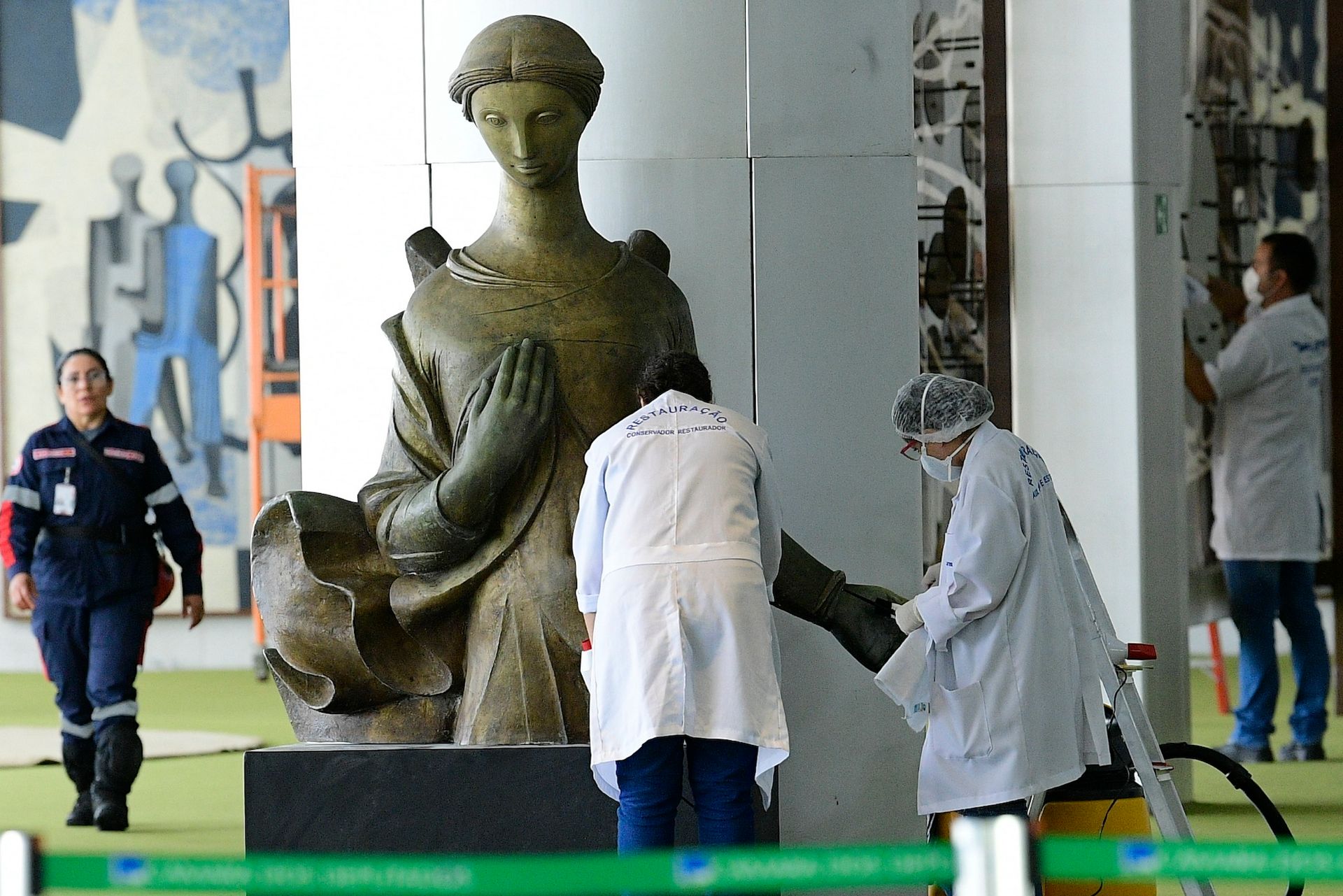[ad_1]
An initiative to create a complete report of the 2023 rebel of the Brazilian congress has been launched as a part of the event of the Museum of Democracy in Brasília, a forthcoming museum that can discover the advanced historical past of democratic rule within the nation.
The Brazilian Institute of Museums (Ibram) introduced the venture this month, revealing that the digital archive will comprise a set of movies, audio recordings and pictures documenting the occasions that unfolded on 8 January of final 12 months, when hundreds of supporters of the previous president Jair Bolsonaro arrived within the Brazilian capital to protest the election of President Luiz Inácio Lula da Silva (generally known as Lula) .
The initiative goals to supply an unbiased presentation of the occasion, that includes “unique and scenographic content material” and goal language “with substantive approaches, and with out adjectives”, in line with a press release printed by organisers. Some supplies included within the forthcoming archive—like information clippings, previews of in-progress documentaries and different gadgets associated to the rebel—are on view within the museum’s first on-line exhibition.
A part of the web archive might be exhibited within the forthcoming museum, an $8m venture scheduled to open in 2025. Past the rebel, the museum will contemplate the occasions that influenced the political evolution of the Western world, starting with the origins of democratic thought in historic Greece, and look at the nationwide and worldwide occasions earlier than, throughout and within the aftermath of the 1964-85 army dictatorship in Brazil.

A workforce of technicians begins the restoration work on Angel (1970) by Alfredo Ceschiatti Pedro França/Agência Senado
The museum might be financed by a mixture of federal and personal funds, holding rotating exhibitions and civic programmes like academic seminars and programs. Its mission is to hint the institution of the Brazilian structure in 1888, and “contribute to the political evolution of the Brazilian individuals in facets which are nonetheless missing of their formation—such because the growth of democratic tradition and the rise in political participation”, organisers state.
Throughout the rebel, hundreds of individuals broke by safety boundaries and vandalised three Oscar Niemeyer-designed federal buildings—together with the Palácio do Planalto—listed as Unesco World Heritage Websites. The protestors hoped that the invasion would spur a coup d’état and disrupt the democratic transition of energy. Cops, a few of whom have been attacked amid the chaos, have been accused of allowing the following riots by not intervening quick sufficient. Of the 1,500 individuals who have been detained, round 400 have been arrested in connection to the occasions of that day.
The buildings focused contained a number of artistic endeavors that have been broken or stolen in the course of the invasion. Amongst these focused was Emiliano Di Cavalcanti’s As Mulatas (1962), which was discovered ripped in seven locations; Jorge Eduardo’s Bandeira do Brasil (1995), a portray of the nationwide flag that was found in a pool of water after insurrectionists flooded the ground; and the sculpture Angel (1970) by Alfredo Ceschiatti.
These works and several other others broken in the course of the rebel at the moment are being restored, together with a complete of 15 work, a Portuguese ceramic amphora, a piece in wooden, two metallic sculptures and one work on paper. Greater than $445,000 has been budgeted for the year-long restoration venture, overseen by the Nationwide Historic and Creative Heritage Institute (Iphan) and the Federal College of Pelotas.
The restorations might be carried out contained in the Palácio da Alvorada (the presidential residence) in line with the needs of the Lula administration, and might be open for public viewing. In an announcement final 12 months, Iphan acknowledged that the intention of getting public amenities is to each “encourage the return of visitation to the palaces” and to permit “the inhabitants to visualise how heritage is recovered, particularly that which gained larger symbolic which means after 8 January”.
[ad_2]
Source link



